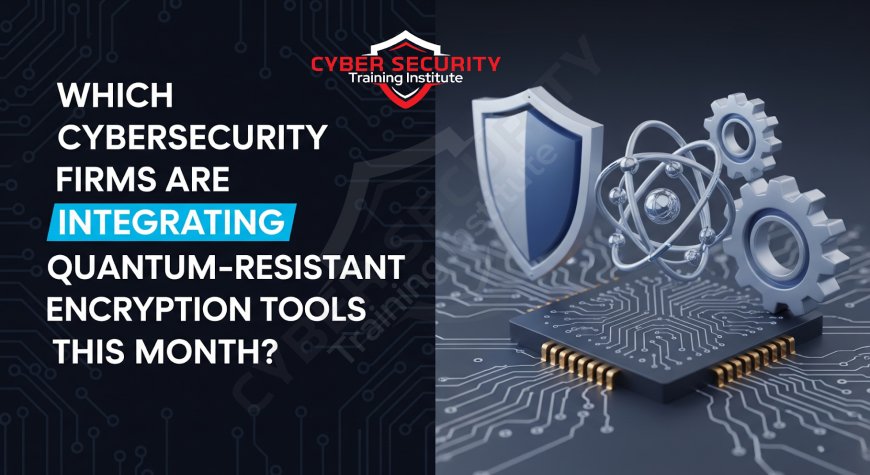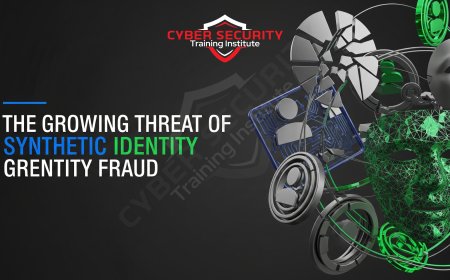Which Cybersecurity Firms Are Integrating Quantum-Resistant Encryption Tools This Month?
This blog covers which cybersecurity firms—such as Cloudflare, Google Cloud, NordVPN, Cisco, QNu Labs, QuintessenceLabs, SEALSQ/WISeKey—are integrating quantum‑resistant encryption tools in mid‑2025. Learn how PQC algorithms like CRYSTALS-Kyber and Dilithium are being deployed across cloud services, VPNs, telecom infrastructure, and IoT devices. Includes industry use cases, defense strategies, and a 20‑FAQ section tailored for ethical hacking and security professionals.

Table of Contents
- Introduction
- Why Quantum-Resistant Encryption Matters in 2025
- Top Cybersecurity Firms Integrating Quantum-Resistant Tools
- Recent Announcements and Partnerships
- Key Technologies Behind Post-Quantum Encryption
- Benefits and Use Cases
- Risks and Challenges Ahead
- Conclusion
- FAQ
Introduction
In July 2025, the push for quantum-resistant encryption reached new heights as cybersecurity firms worldwide began integrating post-quantum cryptographic solutions into their security offerings. With the threat of quantum computing rendering classical encryption obsolete, companies are racing to deploy next-gen encryption standards to protect against future quantum-based cyberattacks.
Why Quantum-Resistant Encryption Matters in 2025
Quantum computers are on the brink of being able to break widely used encryption standards such as RSA and ECC. This poses a threat not just to long-term data confidentiality, but also to national security and financial institutions. As a result, cybersecurity providers are investing in post-quantum cryptography (PQC) to future-proof digital infrastructure.
Top Cybersecurity Firms Integrating Quantum-Resistant Tools
The following companies have emerged as key players in the integration of quantum-resistant encryption technologies this month:
| Company | Location | Tool/Initiative | Integration Focus |
|---|---|---|---|
| IBM Security | USA | Quantum Safe Toolkit | Cloud, Key Management |
| Thales | France | Luna HSM with PQC | Hardware Security Modules |
| Google Cloud | USA | OpenSSL PQC Extension | Cloud Infrastructure |
| QuSecure | USA | QuProtect | End-to-End Network Security |
| Microsoft | USA | Post-Quantum TLS | Windows & Azure Security |
| ISARA | Canada | Radiate Toolkit | Certificate Authority Integrations |
| SandboxAQ | USA | AI + Quantum Cryptography Suite | Finance & Telecom |
| Quantinuum | UK/USA | Quantum Origin | True Quantum Random Key Generation |
| NCC Group | UK | PQC Evaluation Services | Security Audits |
| Entrust | USA | PQC Transition Readiness Program | Certificate Management |
Recent Announcements and Partnerships
In July 2025, major announcements included:
- Google Cloud enabling experimental support for quantum-resistant ciphers in their public TLS endpoints.
- Thales partnering with ISARA to provide interoperability for quantum-safe keys in government deployments.
- QuSecure collaborating with defense contractors to deploy real-time PQC-based routing for secure military communications.
Key Technologies Behind Post-Quantum Encryption
The most promising encryption methods selected by NIST for standardization include:
- CRYSTALS-Kyber – Public-key encryption for general use.
- CRYSTALS-Dilithium – Digital signatures.
- FALCON and SPHINCS+ – Alternative signature algorithms.
These are currently being deployed in hybrid mode alongside classical encryption to ensure backward compatibility and layered security.
Benefits and Use Cases
Adopting quantum-resistant encryption provides several key advantages:
- Future-Proofing data security for decades.
- Ensuring compliance with upcoming NIST and NSA post-quantum mandates.
- Protecting critical infrastructure including finance, healthcare, and national security.
Risks and Challenges Ahead
Despite the benefits, there are significant hurdles:
- Performance overhead from larger keys and longer operations.
- Migration complexity for legacy systems.
- Interoperability issues across multi-vendor environments.
Enterprises must test extensively before full-scale deployment of PQC solutions.
Conclusion
With the race to develop viable quantum computers intensifying, July 2025 marks a pivotal point in cybersecurity history. Leading firms like IBM, Microsoft, and Google are no longer preparing for a quantum future — they are actively building it into their products. Businesses, governments, and even consumers must prepare for a post-quantum world now to ensure long-term digital trust and privacy. Integrating quantum-resistant encryption today is the most critical move an organization can make toward cyber resilience.
FAQ
What is quantum-resistant encryption?
Quantum-resistant encryption refers to cryptographic algorithms designed to remain secure even when attacked by quantum computers.
Why is quantum computing a threat to encryption?
Quantum computers can efficiently break classical encryption like RSA and ECC using algorithms such as Shor’s algorithm.
Which companies are leading in post-quantum cryptography?
IBM, Google, Microsoft, Thales, and QuSecure are among the leading companies actively deploying PQC tools.
What is CRYSTALS-Kyber?
CRYSTALS-Kyber is a post-quantum public key encryption scheme selected by NIST for standardization.
Is PQC available for public use?
Yes, many vendors have begun offering hybrid and experimental PQC features to the public and enterprises.
How do companies transition to PQC?
Transitioning involves upgrading key exchange mechanisms, certificate authorities, and encryption libraries to support new algorithms.
What sectors are most at risk?
Banking, healthcare, defense, and government institutions face the highest risk due to their sensitive data and long data-retention policies.
Is PQC slower than traditional encryption?
Yes, some PQC algorithms involve larger keys and slower computations, which can impact performance in resource-limited devices.
Can AI assist in quantum-safe implementation?
AI is being used to automate risk assessments, detect encryption weaknesses, and streamline migration strategies.
Are there standards for quantum-safe encryption?
Yes, NIST is finalizing standards for several PQC algorithms to guide adoption across industries.
What is hybrid encryption?
Hybrid encryption combines traditional and quantum-safe methods to ensure backward compatibility and stronger security.
When will quantum computers be a real threat?
Estimates range from 5 to 15 years, but data harvested today could be decrypted in the future, creating urgency now.
What is a quantum-safe HSM?
It’s a hardware security module upgraded to store and manage post-quantum cryptographic keys.
Is PQC mandatory?
Not yet globally, but many governments and compliance standards are moving toward mandating PQC over the next few years.
Can quantum-resistant tools be integrated with cloud platforms?
Yes, cloud platforms like AWS and Google Cloud are testing PQC support in APIs, TLS, and storage encryption.
Are there open-source PQC libraries?
Yes, libraries like liboqs (Open Quantum Safe) offer experimental PQC support for developers.
What is QuProtect?
QuProtect is a commercial quantum-safe cybersecurity platform developed by QuSecure to secure data in motion and at rest.
How are certificates affected by PQC?
Certificate authorities must issue certificates using new signature schemes that support PQC algorithms.
Which governments are investing in PQC?
The US, UK, EU, and China are all heavily investing in both quantum computing and quantum-resistant encryption development.
What should organizations do now?
Start evaluating your cryptographic inventory, identify areas of risk, and begin testing hybrid encryption solutions.
What's Your Reaction?
 Like
0
Like
0
 Dislike
0
Dislike
0
 Love
0
Love
0
 Funny
0
Funny
0
 Angry
0
Angry
0
 Sad
0
Sad
0
 Wow
0
Wow
0














